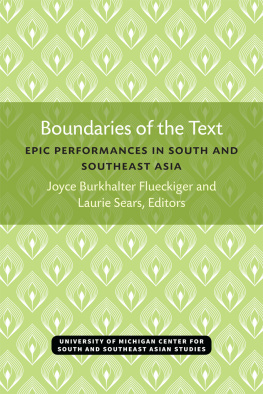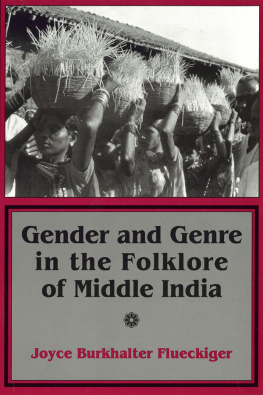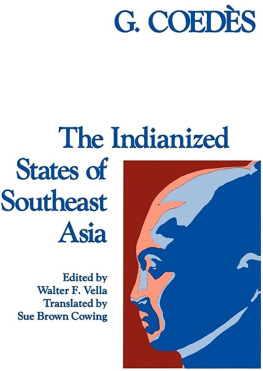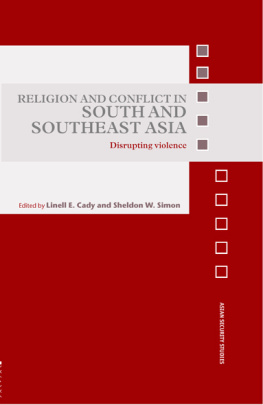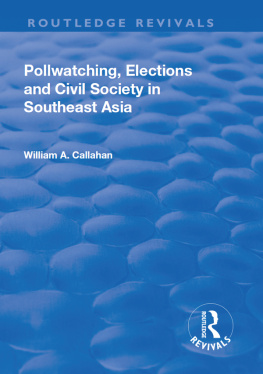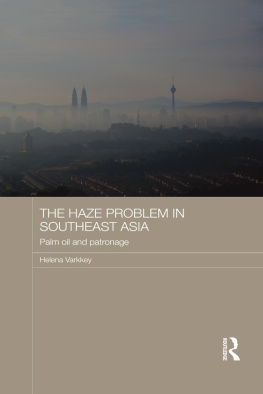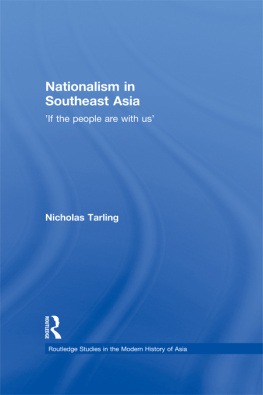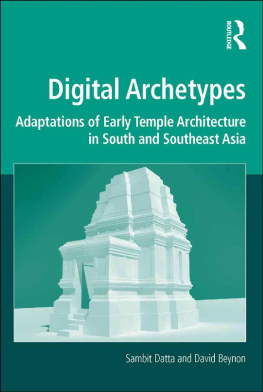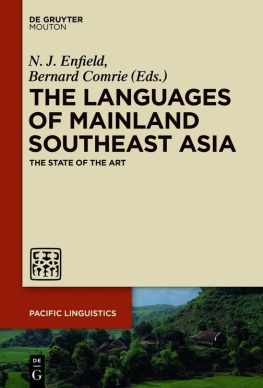Joyce Burkhalter Flueckiger - Boundaries of the Text: Epic Performances in South and Southeast Asia
Here you can read online Joyce Burkhalter Flueckiger - Boundaries of the Text: Epic Performances in South and Southeast Asia full text of the book (entire story) in english for free. Download pdf and epub, get meaning, cover and reviews about this ebook. year: 2020, publisher: University of Michigan Center for South and Southeast Asian Studies, genre: Romance novel. Description of the work, (preface) as well as reviews are available. Best literature library LitArk.com created for fans of good reading and offers a wide selection of genres:
Romance novel
Science fiction
Adventure
Detective
Science
History
Home and family
Prose
Art
Politics
Computer
Non-fiction
Religion
Business
Children
Humor
Choose a favorite category and find really read worthwhile books. Enjoy immersion in the world of imagination, feel the emotions of the characters or learn something new for yourself, make an fascinating discovery.
- Book:Boundaries of the Text: Epic Performances in South and Southeast Asia
- Author:
- Publisher:University of Michigan Center for South and Southeast Asian Studies
- Genre:
- Year:2020
- Rating:3 / 5
- Favourites:Add to favourites
- Your mark:
- 60
- 1
- 2
- 3
- 4
- 5
Boundaries of the Text: Epic Performances in South and Southeast Asia: summary, description and annotation
We offer to read an annotation, description, summary or preface (depends on what the author of the book "Boundaries of the Text: Epic Performances in South and Southeast Asia" wrote himself). If you haven't found the necessary information about the book — write in the comments, we will try to find it.
Joyce Burkhalter Flueckiger: author's other books
Who wrote Boundaries of the Text: Epic Performances in South and Southeast Asia? Find out the surname, the name of the author of the book and a list of all author's works by series.
Boundaries of the Text: Epic Performances in South and Southeast Asia — read online for free the complete book (whole text) full work
Below is the text of the book, divided by pages. System saving the place of the last page read, allows you to conveniently read the book "Boundaries of the Text: Epic Performances in South and Southeast Asia" online for free, without having to search again every time where you left off. Put a bookmark, and you can go to the page where you finished reading at any time.
Font size:
Interval:
Bookmark:

The University of Michigan
Center for South and Southeast Asian Studies
MICHIGAN PAPERS ON SOUTH AND SOUTHEAST ASIA
Ann Arbor, Michigan
BOUNDARIES OF THE TEXT
Epic Performances in South and Southeast Asia
Edited by
Joyce Burkhalter Flueckiger and Laurie J. Sears
Center for South and Southeast Asian Studies
The University of Michigan
Michigan Papers on South and Southeast Asia
Number 35
Open access edition funded by the National Endowment for the Humanities/Andrew W. Mellon Foundation Humanities Open Book Program.
Library of Congress catalog card number: 9085739
ISBN: 0891480625 (cloth)
ISBN: 0891480633 (paper)
Copyright 1991
Center for South and Southeast Asian Studies
The University of Michigan
Printed in the United States of America
ISBN 978-0-89148-062-4 (hardcover)
ISBN 978-0-89148-063-1 (paper)
ISBN 978-0-472-12775-7 (ebook)
ISBN 978-0-472-90171-5 (open access)
The text of this book is licensed under a Creative Commons Attribution-NonCommercial-NoDerivatives 4.0 International License: https://creativecommons.org/licenses/by-nc-nd/4.0/
CONTENTS
Laurie J. Sears and Joyce Burkhalter Flueckiger
Amin Sweeney
Wendy Doniger
Joyce Burkhalter Flueckiger
Laurie J. Sears
Philip Lutgendorf
Stuart H. Blackburn
Mary S. Zurbuchen
Amin Sweeney
The editors have chosen not to italicize the terms Ramayana and Mahabharata in order to emphasize that they are flexible traditions rather than simply printed texts. The names of printed texts are italicized. Regional performance genres of these traditions are italicized as non-English words, but not capitalized unless they contain the name of an epic character.
In the essays on South Asian epic traditions, the names of the epics and their characters are spelled in English, approximating their pronunciation without diacritical marks (thus, Lakshmana, rather than Lakmaa). For consistency among essays, the two essays discussing Hindi traditions spell the names of the epics and characters according to their pan-Indian forms (Ramayana rather than Ramayan; Rama rather than Ram).
Following Indonesian and Malaysian governmental practice, diacritical marks are not used for Malay, Indonesian, and Javanese italicized words.
Stuart H. Blackburn is the author of Singing of Birth and Death: Texts in Performance (Philadelphia: University of Pennsylvania Press, 1988) and coeditor of two books on Indian folklore. He currently teaches at the University High School in San Francisco and is completing a book on the Kerala shadow puppet play.
Wendy Doniger (formerly OFlaherty) is the Mircea Eliade Professor of the History of Religions at the Divinity School of the University of Chicago. Among her recent publications are Other Peoples Myths (New York: Macmillan, 1988) and Textual Sources for the Study of Hinduism (Chicago: University of Chicago Press, 1990).
Joyce Burkhalter Flueckiger is an independent research scholar and the publications editor at the Center for Southeast Asian Studies, University of Wisconsin-Madison. She is a coeditor of Oral Epics in India (Berkeley: University of California Press, 1989) and the author of several articles on genre, folklore systems, and performance in central India.
Philip Lutgendorf teaches Hindi and modern Indian studies at the University of Iowa, in the Department of Asian Languages and Literature. His research interests include medieval Hindu devotional literature and contemporary culture and performance. He is the author of The Life of a Text: Performing the Rmcaritmnas of Tulsids (Berkeley: University of California Press, 1991).
Laurie J. Sears is an assistant professor of history at the University of Washington in Seattle. Her article entitled Aesthetic Displacement in Javanese Shadow Theatre: Three Contemporary Performance Styles recently appeared in The Drama Review (Fall 1989).
Amin Sweeney is professor of Malay and Indonesian in the Department of South and Southeast Asian Studies at the University of California at Berkeley. His recent publications include A Full Hearing: Orality and Literacy in the Malay World (Berkeley: University of California Press, 1987).
Mary S. Zurbuchen is currently a program officer for the Ford Foundation in New Delhi. Her research interests include Balinese textual and performance studies, and contemporary cultural change in South and Southeast Asia. She taught Indonesian language and literature at the University of California-Berkeley and is the author of The Language of Balinese Shadow Theater (Princeton: Princeton University Press, 1987).
Laurie J. Sears and Joyce Burkhalter Flueckiger
Audiences can witness performances of the Mahabharata and Ramayana in South and Southeast Asia in an array of styles that range from two-hour recitations by a single performer and informal womens singing groups to all-night shadow puppet plays and professional theatrical productions performed for thirty consecutive nights. Performances of the epics in these regions often celebrate ritual passages: births, deaths, marriages, and religious observances. Although written versions of the Mahabharata and Ramayana have existed in both South and Southeast Asia for hundreds of years, the texts were rarely intended to be read privately. The stories live and are transmitted through performance; their characters are well known and well loved.
This volume examines several performance traditions of the Mahabharata and Ramayana in South and Southeast Asia and, more specifically, the relationship between these performances and the written texts that record the epic traditions. The indigenous terminology for some of the traditions examined in this volume may not distinguish between performed and written versions, although the performers have specific ideas about what performance does to the written text. Other traditions maintain more rigid, marked boundaries between performed and written genres.
Given the common associations between performance and orality and between written texts and literacy, the examination of the interaction between text and performance has been overshadowed by the broader scholarly discourse on orality and literacy.
The dynamics of the interaction between written texts and performance are of particular interest in South and Southeast Asia where oral performance and written traditions share a long and interwoven history. Their continuing interactions challenge early studies of orality and literacy which assumed a clear distinction between the two. Lords study of Yugoslav and Homeric epics ([I960] 1976) is an example of this assumption. Building on the foundations laid by Parry, Lord pointed to certain textual characteristics, including formula and theme, that identify a particular text as having been composed orally. This schema does not account for certain complex situations in which texts have been written for oral performance and, therefore, may include many of the features that Lord identifies with oral composition (cf. Finnegan 1976).
More recently, the emphasis in orality/literacy studies has been on the continuum between oral and written language rather than on their dichotomy. Walter Ong (1982, 26), for example, identifies written texts that display Lords oral features as representing one step along the way from orality to literacy, before the oral mind has fully interiorized writing. More generally, the work of Ong and other scholars concerns itself with the power of writing and literacy to gradually, but radically, restructure consciousness and alter thought processes and styles of communication. While they acknowledge that literacy does not replace orality and that the transition to literacy does not always follow the same patterns, there remains an underlying assumption of a unidirectional movement from orality to literacy.
Font size:
Interval:
Bookmark:
Similar books «Boundaries of the Text: Epic Performances in South and Southeast Asia»
Look at similar books to Boundaries of the Text: Epic Performances in South and Southeast Asia. We have selected literature similar in name and meaning in the hope of providing readers with more options to find new, interesting, not yet read works.
Discussion, reviews of the book Boundaries of the Text: Epic Performances in South and Southeast Asia and just readers' own opinions. Leave your comments, write what you think about the work, its meaning or the main characters. Specify what exactly you liked and what you didn't like, and why you think so.

